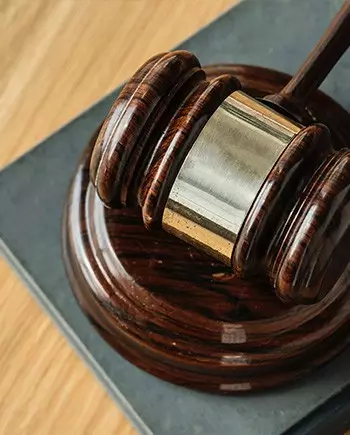An expert witness is a witness who is is regarded to have recognised professional knowledge in a field of expertise.
The main duty of an expert witness is to give testimony regarding an issue which requires expert opinion to aid the court in reaching a verdict. This testimony can be in the form of an Expert Witness Report, or they may be required to be involved with the court proceedings and testify in court.
In most cases, in a court of law, the party that offers the expert must testify on the experience and credentials of the expert to ascertain that he/she is qualified. Expert's qualification can be determined by a number of factors including:
- Area of Expertise
- Certifications and Licenses
- Practical Experience
- Training
- Awards and Credentials
- Education
- Peer Recognition


Types of Expert Witnesses
There are three types of expert witnesses in England and Wales:
1. Party Appointed Expert (PAE): This type of witness is appointed and instructed by one of the parties in a dispute. The witness is supposed to assist the court with their expertise as per their qualifications. The duty of PAE overrides any obligations to the party that has appointed or paid them.
2. Single Joint Expert (SJE):This kind of an expert is appointed and instructed by all the parties involved in a dispute. The primary duty is to help the court with their expertise. This duty overrides the obligations to the party that's paying or giving them instructions.
3. Expert Adviser (Shadow Expert) : This type of an expert witness is appointed by one of the parties involved in a dispute to offer advice. Since a shadow expert is not covered by the Civil Procedure Rules, they do not have a duty to the court and may not even give any evidence.
When are Expert Witnesses Required?
Current rules encourage the use of a Single Joint Expert to represent all the parties. However, you can appoint your witness (PAE) to represent you alone and give his or her own expert opinion.
Whether court proceedings use PAE or SJE, the main objective of using expert witnesses is to help the court make a fair judgement.
After expert witnesses have given their opinion, a report will be produced for either of the parties involved in a dispute to ask questions. The witness is allowed to respond if they are required to clarify or explain anything from the report. Then, the report and the answers given during the proceedings will be used to make a judgement by the court.
It is very important for an expert witness to prepare a report before they get into a courtroom. The report should include all the references and documents they used to form an opinion.
The report and the expert's resume should be disclosed to the opposing party just in case they have any questions or they need any clarifications.
The resume should include the work experience, publications and education details of the expert. Even though the report is not admissible into evidence, it can be used to refresh the expert's recollection when they are testifying in court.
Finally, the expert should be trained in the legal standards and how to lay a foundation to make their methods and testimony admissible in a legal hearing. For example, an expert witness should be able to discuss the process they used to reach a conclusion.
The process should involve the use of methods or principles that are accepted within the scientific community to make their experiments and conclusions valid.
Are you looking for an expert witness architect in Sussex, Kent, Surrey and London? For architect services in West Sussex and the surrounding areas, follow the links below.

